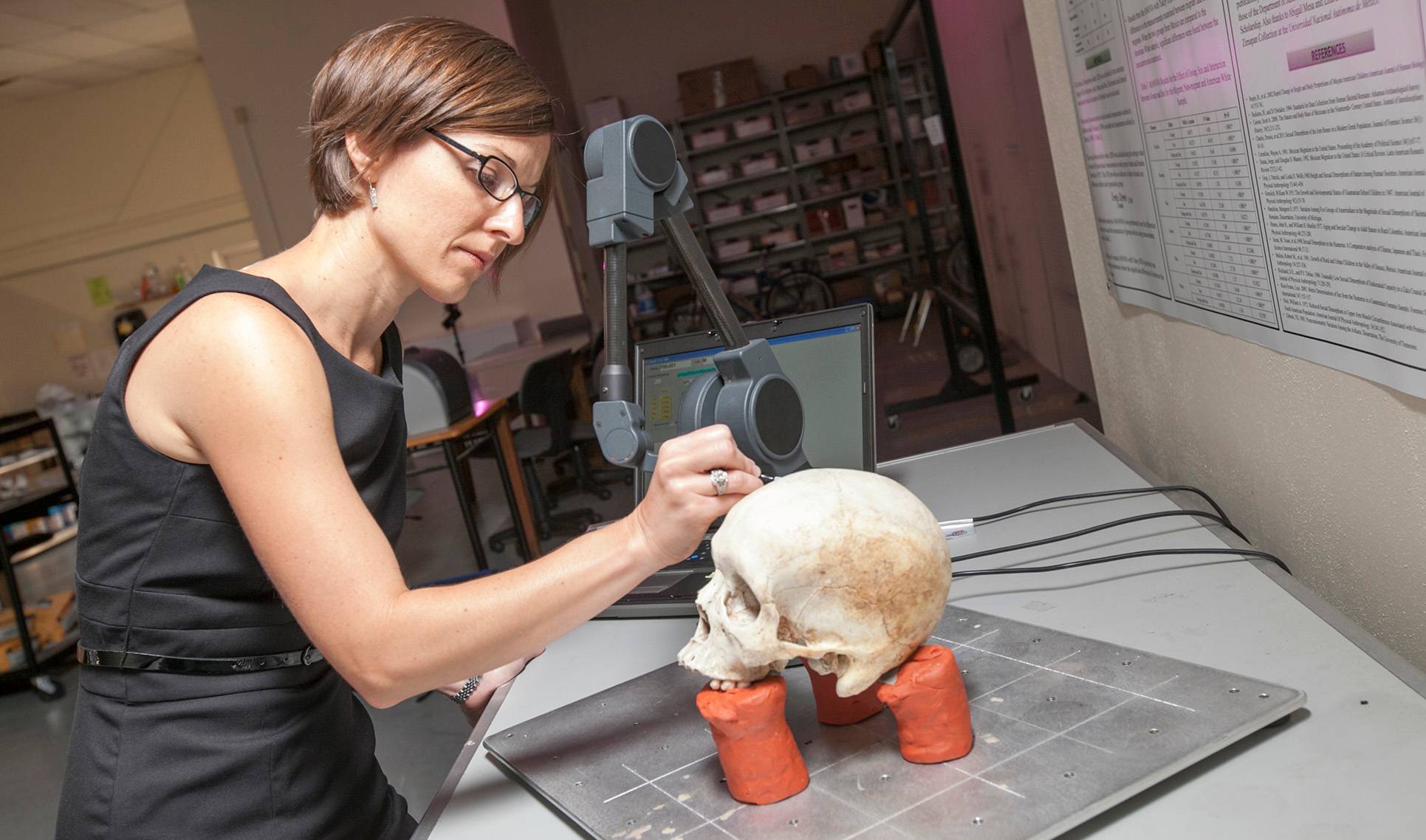Forensic anthropology receives state grant in support of Operation ID
Jayme Blaschke | September 12, 2019

Kate Spradley, a professor of anthropology with the Forensic Anthropology Center (FACTS) at Texas State University, has received a $200,000 grant from the State of Texas Homeland Security Grants Division in support of Operation ID.
The two-year grant will allow Operation ID to continue its mission of facilitating identifications of unidentified human remains found in South Texas.
"This funding allows us to carry out our mission, but also to involve students in every aspect of the project, from searching for unidentified burials to the identification process," Spradley said. "There is no other forensic anthropology program in the country that has an integrated and applied humanitarian and human rights project. This grant benefits the families of the missing, helps counties achieve compliance with state laws pertaining to the missing and unidentified, and helps train the next generation of forensic anthropologists."
Since 2000, more than 3,000 undocumented migrant deaths occurred in South Texas. The Texas Code of Criminal Procedures requires a forensic examination, collection and submission of DNA samples from unidentified human remains, and submission of paperwork to an unidentified and missing persons database. Due to the high volume of deaths and lack of county resources, local Justices of the Peace and local law enforcement in Brooks, Starr and Cameron counties were overwhelmed and began to bury the undocumented migrants, most without proper analyses or collection of DNA samples, leaving little chance that these individuals would ever be returned to their families. In turn, families were left without knowing what has happened to their son, daughter, mother, father, brother or sister.
While some counties have corrected their actions, there are still deaths that occurred more than a year ago that are in need of exhumation and analysis. In response to this situation, FACTS has been working with the Forensic Border Coalition to locate cemeteries containing undocumented migrants through community outreach. FACTS has exhumed 93 sets of unidentified human remains and is conducting anthropological analyses, submitting DNA samples to CODIS and, in doing so, helping counties achieve compliance with state laws. Currently, FACTS has 266 sets of unidentified human remains from South Texas counties, 75 in need of analyses, 22 in need of processing and 75 in need of DNA submission.
The grant will allow FACTS to continue exhumations of presumed undocumented migrant remains in Starr, Cameron and Brooks counties, to continue analysis and identification efforts of remains, and to explore future exhumation sites in Maverick, Val Verde, Zavala and Zapata Counties. The funding will allow the hiring of a full-time forensic anthropology lab technician that will conduct case work, as well as a half-time laboratory assistant that will assist the technician and perform general laboratory duties for facilitating identifications.
Share this article
For more information, contact University Communications:Jayme Blaschke, 512-245-2555 Sandy Pantlik, 512-245-2922 |